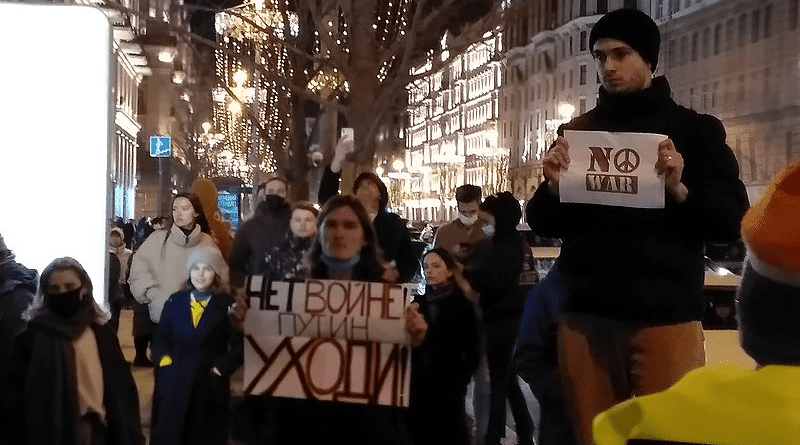‘Denationalization’ As An Important Geopolitical Tool Of Capitalism – OpEd
By Anbound
By Kung Chan
The war in Ukraine is a conflict with Russia, and objectively speaking Russia is not invading the country, yet precisely because Vladimir Putin has chosen war, he has to bear the responsibility. A more interesting observation in this matter could be looking at the reactions of the Western world.
In this war, Western countries have used up almost all geopolitical tools, and the effect and pressure are obvious. That said, apart from wars that involve tanks and cannons, researches on hot wars in human conflicts are neither thorough nor systematic. This begs the questions that how many geopolitical tools can exist as non-physical deterrents in conflicts?
With the war in Ukraine as a study case, it can be assessed as follow:
From a geopolitical point of view, four tools are the biggest pressure and blow to Russia: 1. The UN and other international organizations can expel Russia from them. In the case of UN, there are chances for Russia to lose its seat and its two-thirds majority; 2. Russia could be cut off from the capitalist SWIFT system as a form of financial sanctions; 3. Trade sanctions, including energy transactions, could be closed; 4. Capital sanctions, global tracking and seizure of Russian funds.
These non-physical geopolitical tools are clearly seen in the Ukraine war. While not all of them are used now, if these four “big things” are all launched, Russia will definitely lose. The next question is how will it lose. Will it resist to the end, or will it negotiate? This is of course, another matter. Russia, as a nation, will lose because it is “denationalized”.
What is left when a nation is denationalized? It will be nothing more than an organization, or even an illegal organization for that matter. This type of organization exists in every country, and indeed there is a huge number of them. They tend to be highly unstable and constantly evolving, without the prospect of promising future. They merely exist.
The significance of a nation in the world lies in its meaningful activities. When a nation can do nothing, it would no longer possess geopolitical values. When Russia is marginalized to the extreme, it would be as good as not existing at all. Therefore, “denationalization” is actually a dreadful geopolitical tool.
Some might object to this, pointing out that Russia owns nuclear weapons. It is true that Russia can threaten others with that, but many other countries possess nuclear weapons as well, so the practical significance of it would not be huge. There is not much room of difference in reality. The distinction that may be added is the prohibition to export all technologies, which can greatly reduce the future space potential.
With all these in mind, the capitalist system still has an advantage in geopolitical confrontation. From a certain perspective, the war in Ukraine is good for the overall security of the world, because it provides a display window for geopolitical tools. For the first time, politicians from various countries have the opportunity to sit down quietly and consider carefully on the many geopolitical tools that exist outside of newspapers and college textbooks. This allows them to calmly think about making preparations prior confrontations and conflicts.
With Putin demanding the “demilitarization” of Ukraine, how the latter would fare remains unknown. That said, “denationalization” will indeed cause Putin to suffer. For the overall security of the future world, we need the high-level geopolitical wisdom of returning “conflict” to “controversy”.

